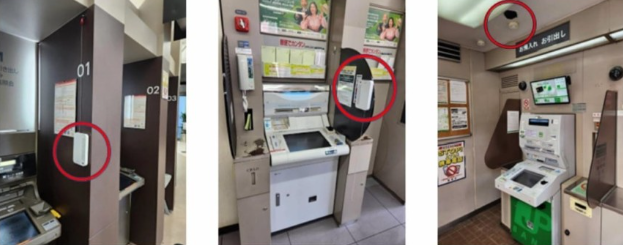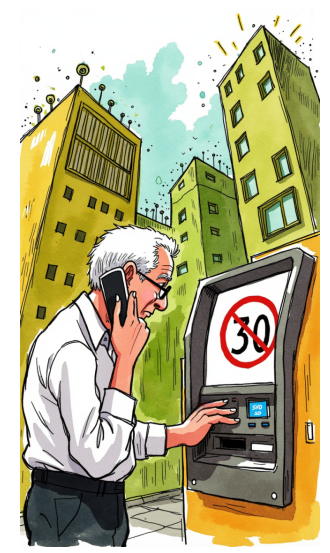
The Japanese National Police Agency is pushing for a plan to limit the use of ATMs to senior citizens aged 75 and over. The plan is to limit the daily withdrawal and transfer to a maximum of 300,000 yen. It aims to minimize damage to the elderly from special scams such as voice phishing.
According to the Yomiuri Shimbun on the 25th, the Japanese National Police Agency is seeking to revise the relevant rules of the Crime Profit Transfer Prevention Act to collectively limit the use of senior citizens. The newspaper said, “The National Police Agency is coordinating detailed measures with the National Bank Association,” adding, “This is the first time to limit withdrawals collectively.” Japan has left the ATM’s usage limit to each bank’s autonomous judgment. For example, withdrawals are up to 500,000 yen per day, and remittances and transfers are 1 million yen per day.
In Japan, there is widespread damage from special fraud in which criminal organizations make calls to senior citizens, impersonate family members or public institutions, induce them to ATMs, and transfer money to designated accounts. The amount of special fraud damages amounted to 72.1 billion yen (700 billion won) last year, a 60 percent jump from the previous year. It was the largest ever recorded. The target was mainly the elderly, and 9,415 people, or about 45% of last year’s 29,951 victims, were over 75 years old.

At a ministerial meeting in June last year, the Japanese government decided to take necessary measures, including restrictions on the use of ATMs by the elderly. The Japanese police agency set the limit at 300,000 yen per day, the level that the elderly suffer the least discomfort. This takes into account the pension payment, which is the main financial transaction for the elderly to withdraw a large amount. In addition, the government is also considering making an exception for the elderly who run private businesses.
Some worry that the regulations restrict and inconvenience the behavior of potential victims, not criminal organizations or perpetrators. In Japan, a similar regulation was implemented on May 24. The Osaka prefectural government, Japan’s parliament, has passed an ordinance revision that limits daily withdrawals to 100,000 yen or less for senior citizens aged 70 or older who have not transferred money from ATMs for the past three years. It also prohibits senior citizens from manipulating ATMs while talking on mobile phones and requires financial institutions to take necessary measures.
JULIE KIM
US ASIA JOURNAL



